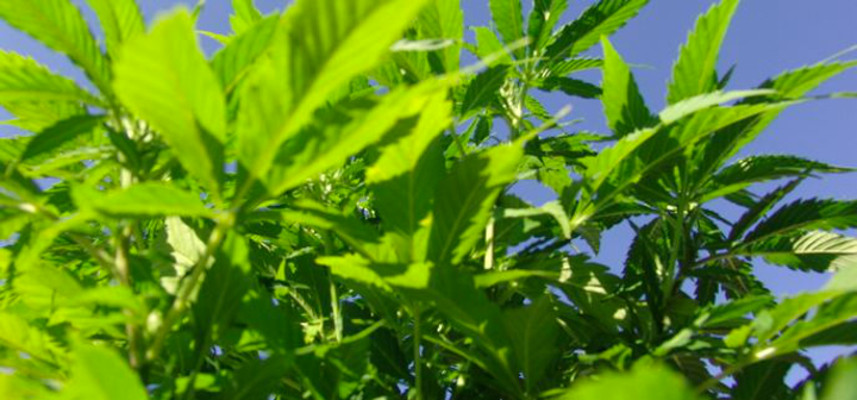
Kentucky became one of the first states to pass legislation that set up an administrative framework for the production of industrial hemp, once federal restrictions were lifted. (File photo)
By Tim Thornberry
Special to NKyTribune
The latest hemp update from the Kentucky Department of Agriculture came at a tobacco warehouse where a packed house included former and current tobacco growers. But the irony was lost on no one.
Among those reporting was Agriculture Commissioner James Comer, who told those gathered at the G.F. Vaughan Tobacco Warehouse #23 in Lexington, “We want to make Kentucky synonymous with hemp like Idaho with potatoes.”
Speaker after speaker sang the praises of the crop that is entering season two of research production, including Derek Vaughan, CEO of Vaughan Tobacco.
“You may not believe this, but you’re standing in the heart of hemp country today. No one else is doing what Kentucky is doing.”
— Andy Graves, Atalo Holdings
Vaughan emphasized that his family is a “tobacco family” that has been involved in the state’s industry for more than a century, the “last remaining tobacco processor in Kentucky … which is an indication of where the tobacco capacity in this state has gone.”
But, he added, “Kentucky has an incredible agricultural heritage and capacity. We were the largest burley producers in the world so we’ve got farmers out there that can grow anything, and this may be the opportunity, we certainly hope so, for them to grow another crop.”
Comer told the crowd that the response from growers and processor to participate in this year’s hemp research projects was overwhelming, especially considering it is a new program.
“We had 326 applications received, 121 participants approved for 2015 and this included seven universities in Kentucky,” said Comer.
Andy Graves, CEO of Atalo Holdings, a holding company for three hemp businesses. He said Atalo has the largest hemp grower group in Kentucky, with 30 growers in 12 counties planting 545 acres.
“You may not believe this, but you’re standing in the heart of hemp country today,” Graves said. “No one else is doing what Kentucky is doing.”
With the passage of Senate Bill 50 two years ago, Kentucky became one of the first states to pass legislation that set up an administrative framework for the production of industrial hemp, once federal restrictions were lifted.
“Hemp equals jobs and true economic development which is what we predicted when we launched Senate Bill 50 two years ago,” he said.
Will Snell, a University of Kentucky agricultural economist and tobacco expert was one of the many attendees at the press conference. He said tobacco, while on the downturn, is still a viable industry.
“Tobacco is not going to go away but as business people in the farming community look for other opportunities as the price of corn goes down and the price of cattle goes down, you have to find something to supplement,” he said.
Snell added that it’s important to get ahead during this research phase of hemp production to learn more about the equipment that will be needed along with what varieties will grow best in the state. Kentucky still has a valuable tobacco infrastructure with equipment that could be repurposed and use in hemp production, he said.
“With some uncertainty of the future, you don’t want to go out and buy a lot of expensive equipment, and if we can have some dual purposes, it would certainly be beneficial to our farmers,” Snell said.
Adam Watson, KDA Industrial Hemp Program coordinator said he was satisfied with the interest from both growers and processors.
“We see that processors are key to the future of the industrial hemp economy and we’ve got to be able to value-add and capture the value of the farm products here in Kentucky with that process,” he said.
Watson also said that with a lot of tobacco farmers looking to diversify their operations, hemp plays well into the diversification process and is sorely needed for those efforts.
For more information on industrial hemp, the pilot projects, and hemp’s history in Kentucky, visit www.kyagr.com/hemp.
Tim Thornberry is a freelance writer and photographer who has covered Kentucky agricultural and rural issues for various publications since 1995.























KY has such a rich history of hemp, it would be great to see it make a strong come back. Farmers can grow more valuable crops, and it can great manufacturing jobs needed so badly. Win win for everyone involved.